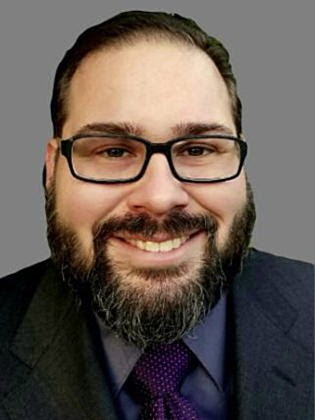Setting up a network at home can devolve into a stream of choice words while pulling out your hair. A sudden, global shift to remote and hybrid work can lead to the same frustration for a number of reasons that may or may not include setting up a router. Morgan Teachworth, the VP of Engineering & Supply Chain at Cisco Meraki, suggests that his company was ideally positioned to support a hybrid workflow.
Main Takeaways
-
- Supporting Hybrid Workflows: It’s obvious that the working world has shifted to many more fully remote or hybrid models. Morgan shares how Cisco Meraki was in a good place to help people from home set up networks easily with what he describes as “plug and play” options. With so much of the workforce under strain, any products that quickly make working from home easier and more secure are valuable to employees and their companies.
- Straddling Engineering and Supply Chain: Being the VP of Engineering & Supply Chain is a pretty unique job title for Morgan. It affords him the opportunity to connect both worlds together. Fundamentally, it makes sense that any person who builds hardware ought to also be considering the supply chain. Though it may not always be easy, doing so will strengthen products.
- Needing Engineers With Good People Skills: Teachworth describes how Cisco Meraki engineers embed with outside manufacturers to work as a team to produce products. He makes the point that it is important that these engineers are able to work well with these contractors. Even more importantly, he chats about how these relational skills can be developed when assisted by communicative management. This mentality can certainly be helpful across industries. On one hand, leaders need to find employees that have good relationship skills. On the other hand, these skills can also be leveled-up through clear conversations and training.
- Innovations in intelligence: In terms of future innovations, Morgan points out two primary areas concerning intelligence. The first is intelligence at the edge in terms of devices and gaining more insight into the physical world. The other intelligence aspect is gaining a greater understanding of what’s happening beyond one’s network into other areas of the world, and what he calls the “pipes,” since so much of what’s occurring is interrelated. Each of these types of intelligence could provide actionable insight to initiate changes.
- Democratizing Access: Many people still do not have network access or the ability to use the internet. This is true in the United States and around the world. Morgan contends that working toward democratization is essential. Making easy to use products can be helpful but they must be broadly shared. Morgan explains that leaning into the edge must be a part of the solution to democratize access for the entire world.
For a more in-depth look at this episode, check out the article below.
Article:
Setting up a network at home can devolve into a stream of choice words while pulling out your hair. A sudden, global shift to remote and hybrid work can lead to the same frustration for a number of reasons that may or may not include setting up a router. Morgan Teachworth, the VP of Engineering & Supply Chain at Cisco Meraki, suggested that his company was ideally positioned to support a hybrid workflow.
“A lot of us have set up a home router and, you know, the first time that you do it, even the simplest one you buy at a big box store off the shelf — like you’re typing in IP addresses; you’re navigating menus,” Teachworth said. “It’s terrible. So Meraki took the simplicity that we had for like an IT pro at the office and said, ‘Well, if you’re gonna just drop it on somebody at home and ask them to set it up, it’s gotta be plug and play. You can’t ask everybody to waste their time, like trying to get it set up.’ And we were ready for that. And so that’s been a big portion of setting up hybrid work is not only it has to work, but it has to be simple to continue to operate, to maintain, to set up, [and] to replace, or you’re gonna have downtime and people aren’t gonna have access to what they need.”
On a recent episode of IT Visionaries, Teachworth shared the vantage point, and benefit, of Cisco Meraki within the greater umbrella of Cisco. Additionally, he described his unique position within the company that bridges the areas of engineering and supply chain. Morgan deepened the conversation as he chatted about the need to make sure networks are available for everyone.
Initially, Teachworth explained Cisco Meraki’s place within Cisco as well as the work that Cisco Meraki focuses on.
“So, Cisco Meraki is a BU in the network experiences portion of Cisco…In short, Miraki was a startup in networking specifically that was acquired by Cisco in 2012,” Teachworth said. “And since then we’ve operated independently inside of [the] Cisco organization to grow the network business. So switches, access points, [and] routers. That’s where we started. And we’ve since expanded into cameras, IoT sensors, and devices like that. We operate as a unit [and] as a true independent BU and try and just keep the whole solution as the whole solution.”
Teachworth oversees an engineering and supply chain team at Cisco Meraki. Interconnecting engineering and supply chain, ultimately, serves customers better.
“One of the things that my joint team does is we maintain records, specific records of every product’s life cycle from birth, to operation, to return, to refurb,” Teachworth said “…I can go look at that. And the fact that I have it end-to-end means that there’s never going to be a hole for the customer in understanding, ‘What happened with my unit? What am I getting from a replacement?’”
On the engineering side, Teachworth broke down how Cisco Meraki views its vendors who help make the products as partners. He also explained his need for engineers who can collaborate well with these companies.
“And so all of those relationships are based on relationships and trust and both of us making money,” Teachworth said. “Obviously I have to pay those companies. They have to make some profit. So I share some of the profit. If I were to go to a more traditional manufacturing model, maybe I could make a little bit more profit, but I’d also have a ton of headaches that they catch for me, right? So I really appreciate the jointness of the model. One of the key hiring criteria for my team is: are you going to be able to parachute into these relationships [and] establish yourself as a friend [and] as a peer?”
The value in building relationships is apparent for Teachworth. Later, the conversation deepened to focus on the broader relationship to the greater world and innovating with democratization in mind.
“Even just looking at infrastructure in the United States, there is certainly a digital divide and it’s a big goal to make sure that we don’t only innovate on the privileged side of that divide,” Teachworth said. “We have to push all of this functionality as quickly as possible to full availability and democratization of the functionality and the data.”
To hear more about how Cisco Meraki is building products and infrastructure to help people do their work, check out the full episode of IT Visionaries!
IT Visionaries is brought to you by the Salesforce Platform – the #1 cloud platform for digital transformation of every experience. Build connected experiences, empower every employee, and deliver continuous innovation – with the customer at the center of everything you do. Learn more at salesforce.com/platform




